Daria and the Clichéd Representation of Teenagers
In 1997, MTV’s animated series Daria aired for the first time. What followed were five seasons and two T.V. movies. Though the show concluded in 2002, this quirky ensemble of animated characters still holds a special, nostalgic place in the hearts of many. A spin-off character from Beavis and Butt-Head, Daria Morgendorffer is the star of the show. A sarcastic and anti-social teenager, the series follows her journey through Lawndale High School. Daria explores a wide range of topics relevant to teenagers. These include friendship, crushes, self-esteem, and college applications.
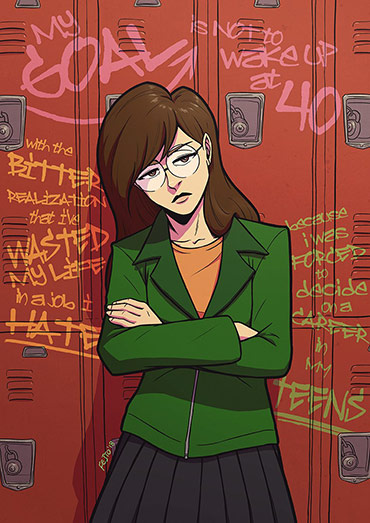
Any narrative set in a high school environment runs the risk of reverting to overused schoolyard clichés and tropes. Vapid cheerleaders, socially inept nerds, the loner misfits; these character types have all been done before, and often. Though such clichés are usually exaggerated for storytelling purposes, they can also inadvertently cause harm to those viewing such media.
Daria flaunts proudly these same clichés. The show’s characters often fit the moulds that popular culture have laid out for them. However, as this article will go on to explore, these characters are made up of far more than just their shallow stereotypes. Daria offers a cast of refreshingly complex characters; all of which are deeply flawed, but capable of growth. For this reason, many ‘types’ of people are positively represented and celebrated for their differing strengths. This can be seen prominently within three of the show’s characters: Daria, Quinn, and Brittany.
Daria, The Misfit
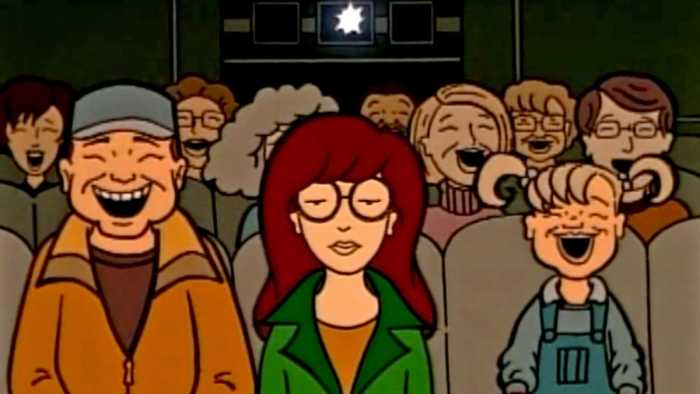
Daria Morgendorffer is a textbook outcast. She appears moody, mysterious, and does not get along easily with her peers. The titular character is best known for her sarcasm, dark wit, and anti-social tendencies. She is truly misunderstood, by both her family and school peers. In the first episode of the show’s first season, Daria is forced to take a self-esteem class. To this, she responds, “I don’t have low self-esteem. It’s a mistake. I have low esteem for everyone else.” Thus, from the series’ outset, Daria is designated the misfit trope. She rejects the ‘mainstream’ and acts as though she is an inherently better person for that.
Throughout the show’s five seasons, Daria’s tendency to reject what others enjoy is prevalent. During the sixth episode in the fourth season, ‘I Loathe a Parade,’ Daria is caught amidst a busy Homecoming Parade whilst running an errand. Her thoughts on this are summed up succinctly: “this whole thing is a big joke.”
The episode is built around her determination to get away from the happy crowds. Children become overjoyed when confectionary is thrown from floats, to which Daria remarks “that’s it. When the candy reaches escape velocity, it’s time to leave.” She even finds herself in an altercation with the school mascot:
“Mascot – Let’s do the Lawndale shuffle.
Daria – How about the ‘get the hell away from me’ slide?”
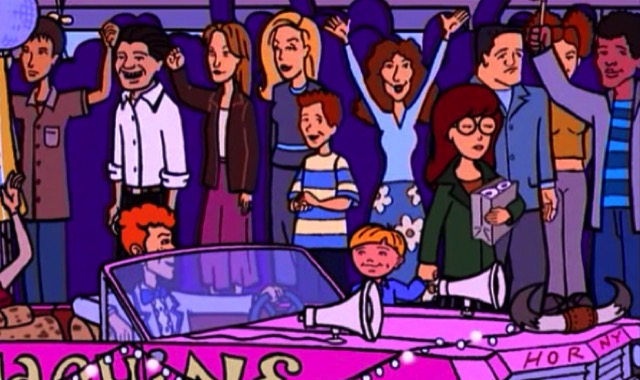
This attitude is not all that Daria is, though. Beneath her hardened exterior, Daria is both caring and compassionate. She can be mean, unfairly so, but she can also be incredibly kind and thoughtful. This is demonstrated within the very same episode. The reason Daria is forced to spend so much time at the parade is because she is approached by a child she once babysat. Having been separated from his parents, he begs her to help him. Daria agrees, stating, “much to my surprise, my conscience tells me I should help you find your parents.” She then dedicates the day to finding the child’s parents.
Even towards those she claims to dislike, such as her younger sister, Quinn, Daria shows a natural kindness. During the first season’s ninth episode, Quinn is convinced by a plastic surgeon that she needs six thousand dollars worth of surgery. She becomes distraught thinking she is unattractive. Daria makes several jokes at her expense, of course. However, she later offers her sister touching reassurance:
“I was hoping it wouldn’t come to this, and I’ll deny I ever said it, but there’s nothing wrong with you. Physically. You’ve got the kind of looks that make other girls mentally ill. So stop it. You don’t need any plastic surgery. You’re perfect.”
Daria shows deep understanding — she knows that her sister cares about her physical appearance more than anything else. She also recognises that her sister is in crisis, and puts aside her own beliefs on the subject to comfort her. Rather than sticking to her normal uncaring attitude, she shows genuine compassion.
Finally, despite her head-strong, misfit appearance, Daria is also insecure. Rather than establish her character as a one-dimensional person incapable of self-awareness, the writers of Daria have constructed their protagonist as emotionally complex. For all of her criticisms of other girls’ obsession with their appearance, she spends considerable time ensuring her own image is maintained.
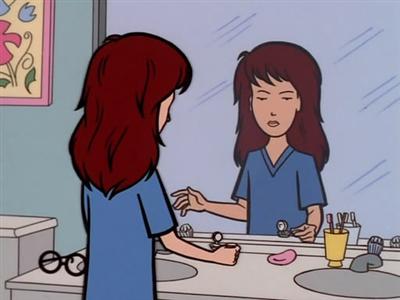
As though she uses her trope as a mask, the threat of needing to alter her appearance — with contact lenses — causes Daria significant worry. During season three’s first episode, titled ‘Through a Lens Darkly,’ Daria’s glasses are discovered to impede her vision whilst driving. Thus, contact lenses become a necessity. Daria feels that, by wearing contact lenses, it would send a message that she, too, cares about her appearance. Trying to make sense of the situation, she asks the question:
“Suppose you were well known for not caring what other people think of you, and then suddenly you did something that showed maybe you do care a little about what other people think of you. Would that invalidate everything you’d done and said up till then and make you a hypocrite?”
Put simply, Daria committed herself to being the outcast, unconcerned with the ‘shallow’ concerns of others. So much so, that it caused her great anxiety to be seen suddenly caring. She confides in her Aunt who encourages her, “it wouldn’t change your personality, it wouldn’t change your values.” Despite her clichéd appearance as a self-assured nonconformist, Daria is still just a teenage girl trying to understand who she is.
The misfit trope is a favourite of many shows, films, and works of literature. For many, this is why they adore the character of Daria. She is weird and unconventional; unafraid of being different. However, she is more than just this stereotype. The edgy outcast forms only one part of Daria as a whole. Hidden underneath, the show’s writers have created a complex and emotional character who is distinctly human.
Quinn, the Popular Girl
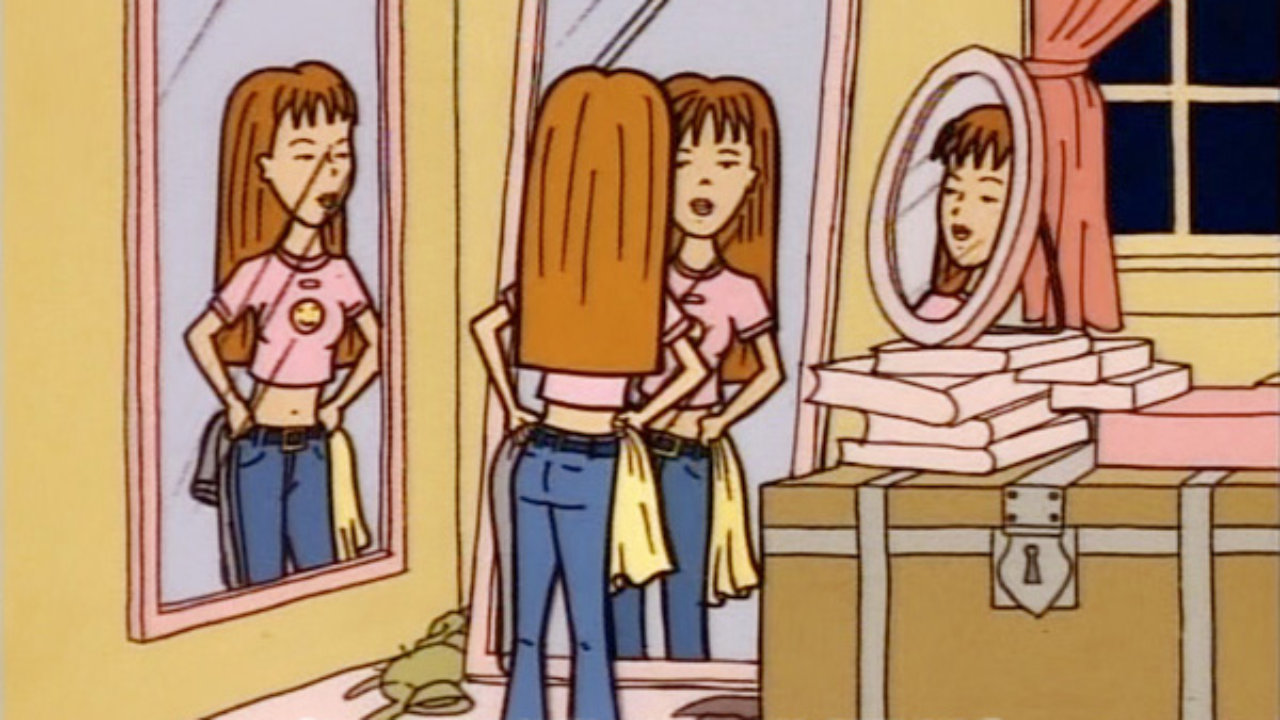
Daria’s younger sister, Quinn Morgendorffer, acts as the protagonist’s antithesis in many ways. She fills the role of the quintessential high school ‘popular’ girl. In the series’ first episode, Quinn arrives at her new school where the greetings include “Hi! You’re cool. What’s your name?” and “Will you go out with me?” Quinn has never had trouble making friends, and she always manages to fall in with the ‘cool’ crowd. She joins the exclusive ‘Fashion Club,’ wherein four girls get together to discuss the latest trends and criticise those who are so-called out of style. Membership considerations for the club include eyelash length and body weight.
Not only is Quinn perceived as immensely shallow, she is also perceived as vapid. In season one, episode six, a modelling agency approaches the high school, looking for new models. Quinn, proudly, shares the poem she wrote for the scouts, “A model’s what I’d like to be… looking good comes naturally… da da da da, da da, me.” It is this behaviour, mixed with her constant judgement of others, that sets her up perfectly as the high school ‘royalty’ cliché.
Though her usual, self-obsessed tendencies mean that it is not immediately obvious, the character of Quinn Morgendorffer is both intelligent and thoughtful. In ‘Quinn the Brain,’ season two’s third episode, at the risk of potentially failing a class, Quinn is told she requires an A on her next assignment to pass. She writes the paper and gets the A she needs. The teacher also reads it aloud to the class. Not only does this prove that she is intelligent, it also offers insight into why she acts as though she is not.
Her friends laugh at her for having the piece read aloud. Rumours spread that she is now a ‘Brain.’ In fictional high school world, of course, popularity and book-smarts are rarely portrayed as compatible. Thus, Quinn is distraught, “what am I gonna do? I can’t be a brain! My friends will hate me!” It is never explicitly stated, but it is clear that Quinn dumbs herself down in order to fit in.
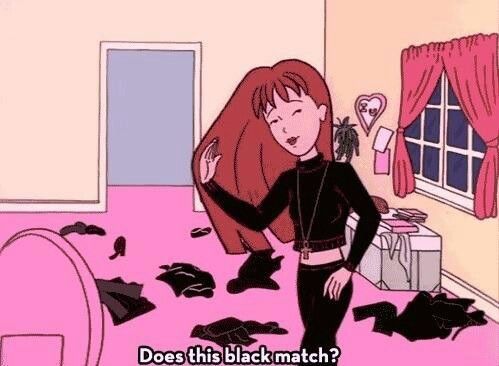
This is confirmed during the T.V. movie titled ‘Is it Fall Yet?’ During this episode, Quinn hires a tutor to help her with her studies. The rest of The Fashion Club do the same; either due to competitiveness or a lack of the ability to think for themselves. The tutor eventually quits working with all three of Quinn’s friends due to their lack of co-operation. He leaves Sandi because she asks him if they can “finish this session at Cashman’s?” He stops working with Tiffany because she refuses to pause the application of her makeup to listen to him. Finally, he quits tutoring Stacy because, upon learning that he quit with the other two, she believes she is being phased out of the group because nobody had told her. This causes her to have an emotional breakdown in the middle of a lesson.
Juxtaposed with her three friends’ lack of care or commitment is Quinn’s dedication to her tutoring sessions. After some initial troubles, she commits fully to her learning. She even finds herself enjoying studying. By their final session, the tutor admits that Quinn has progressed a long way during their sessions. It seems, without the pressure of her friends, Quinn is free to be herself, and express her intelligence. As the tutor notes, Quinn’s usual lack of effort is likely based upon her friends’ intellects: “no chance of feeling stupid around them.” Though this is harsh, it does reveal some truth — social constraints are the only thing holding Quinn back from her own educational success.
A T.V. show focusing on teenagers allows for natural character growth, and each Daria character matures by the series’ conclusion. Though not immediately obvious when watching isolated episodes, this character development is overt when watching the programme from beginning to end. Ultimately, it is Quinn who is arguably most improved. By the final T.V. movie, the concluding episode to the entire series, Quinn shows a distinct sophistication that was absent during the beginning episodes. As she witnesses a co-worker struggle with potential alcoholism, she must grapple with how best to proceed:
“This girl I was working with… I think she has a drinking problem. If I don’t say anything, I’m afraid she’ll get in an accident or something, but if I do say something, she’ll probably never speak to me again.”
Quinn decides to politely approach the subject, and though her friend receives it negatively, it seems the right thing to do. She had to face losing a friend in order to help that friend; something she would likely not have considered doing in the beginning episodes.
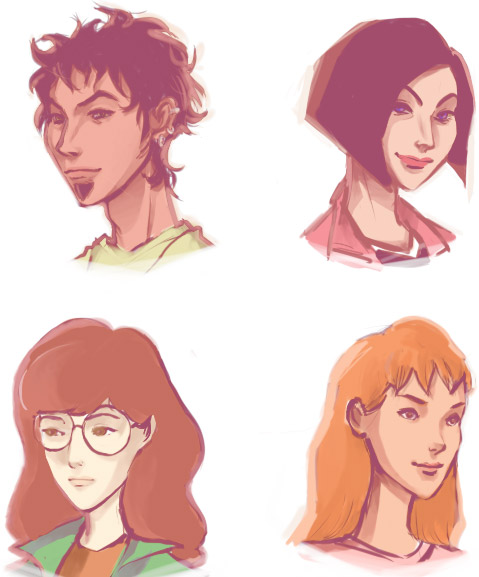
The trope of the popular girl is arguably the most overused in popular culture. Often, they are used simply as a point of conflict, and usually they are defeated. Quinn, however, is different. Like her sister, Daria, she is more than just the stereotype she has been allocated. Instead of a one-dimensional, mean spirited kid, Quinn is often forced to act a certain way. For teenagers especially, peer pressure can be immense. Quinn appears to be a victim of this. Though she is flawed, she is capable of growth and greatness — she is more than just her cliché.
Brittany, the Airhead
It seems that no teenager-themed show or movie would be complete without the so-called airhead trope. Often this character is a woman, and they are depicted as being clueless to an extreme level. This, then, makes them the natural punchline of their peers’ jokes. In Daria, the character of Brittany Taylor occupies this cliché.
Brittany, a cheerleader, is portrayed as utterly clueless. This can be seen clearly in the first episode of the second season, titled ‘Arts ‘N Crass.’ The school asks the students to create an artwork depicting life as a high school student. Brittany’s first attempt is a painting of two bottles, one labelled ‘alcohol’ and another labelled ‘drugs.’ When asked about the painting, she says, “I call it, ‘Don’t Drink or Take Drugs.’ And the message is, don’t drink or take drugs!” After being told that no part of the picture actually portrays the message, she pulls a tube of pink lipstick out of her bag. She draws a cross through the picture and says confidently, “there!”
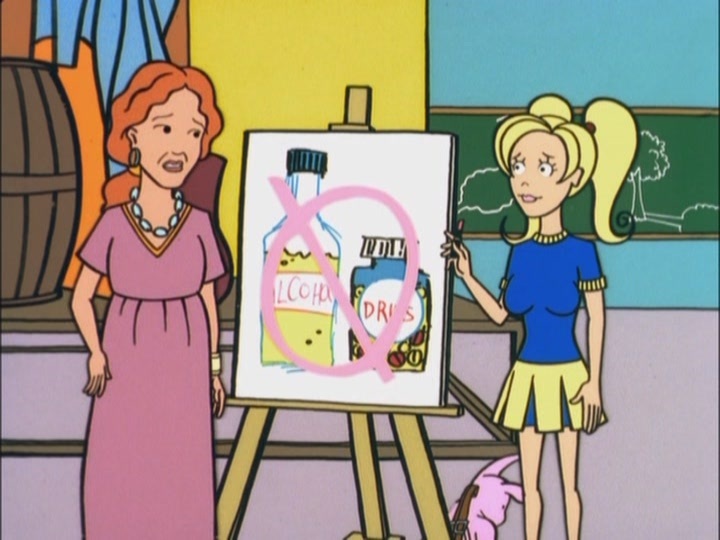
For her second attempt, she draws a group of people standing together and claims her message is “don’t join a gang.” She is, again, told that her message is not clear and subsequently makes another pink lipstick cross. It is little actions like this throughout the series that make it clear that Brittany is intended as an airhead. This goes further than just a stereotype — her apparent lack of intellect is so pronounced that she is a caricature.
Brittany is not book-smart; this makes her an easy punchline. However, she proves that book-smarts is not all that matters. As the show is centred around Daria who, personally, champions this idea of educational success, Brittany can be easily dismissed. However, in other ways she is a valuable role model.
On many occasions, Brittany demonstrates that she is a strong woman who is confident in her sense of self. To begin with, she is the captain of her cheerleading team. This implies that she has strong leadership skills and is able to make decisions. She is also praised for her athletic capabilities. During ‘The Daria Hunter,’ episode two of season two, during a school paintball trip, Brittany demonstrates her knowledge of combat tactics. She leads her team and excels at it, surprising everyone.
More than this, though, she is unafraid to stand up for herself, especially against men; throughout the series she does so multiple times. Take, for example, this argument she has with her boyfriend, Kevin, during season four’s first episode, ‘Partner’s Complaint’:
“Brittany – I know what you think, but I know what I think, and I think I think just as well as you think, don’t you think?
Kevin – If it were up to me, I’d want you to have the brain power of a guy, but it’s science. Men are smarter, because we have more muscle mass in our heads.
Brittany – I’m just as smart as you, maybe smarter.
Kevin – (laughing) Okay, sure you are.”
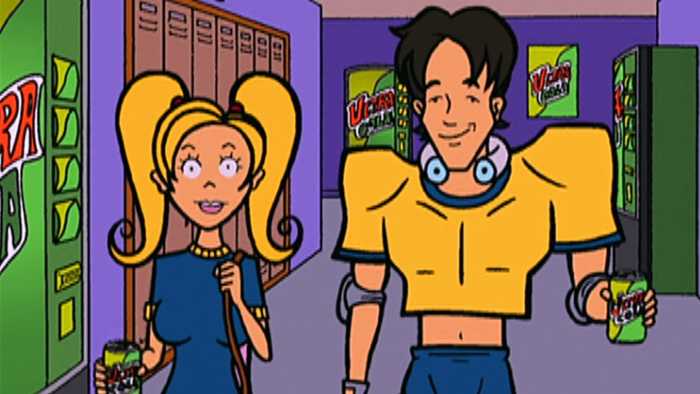
The manner in which she articulates her point leaves much to be desired, however, the sentiment behind it is admirable. Brittany knows her self worth and refuses to be talked down to. While Kevin’s comeuppance might not have been immediate, the series’ finale reveals truth in Brittany’s words. Kevin was made to repeat his final year of high school, whereas the girlfriend he so smugly patronised was able to graduate.
This example is definitely petty, however, Brittany proves her strengths in scenarios more dire, too. During the final episode of the first season, ‘The Misery Chick,’ a former football player returns to the high school. Most of the student body is enamoured by this former sporting star; he gets treated like a celebrity. Brittany shares in this admiration, until she actually meets him face-to-face. His manner of greeting Brittany is to proposition her and make vulgar insinuations. In response to this, she slaps him and refuses to join in the celebration of him. Refusing to allow herself to be treated poorly, Brittany sets an important precedent for viewers.
Brittany is an important character because she highlights value beyond being academically successful. Despite the ‘airhead’ cliché that she has been assigned, and the continued jokes at her expense, Brittany is a well-rounded character. Unlike other shows that use this trope solely for comedic value, Brittany is more than just this stereotype. Her confident sense of self is something that even Daria would aspire to.
The Value of Daria
By subverting common tropes, Daria creates something important: positive representation. In any media, representation is necessary. It is important that viewers are able to identify part of themselves in the characters they watch. Even more so, it is important that such a depiction of themselves is celebrated, not demonised. In a popular TedTalk uploaded in 2009, author Chimamanda Ngozi Adichie discusses another important facet of representation. She argues that, without representation that is positive and accurate, a work runs the risk of only offering a ‘single story’:
“So that is how to create a single story, show a people as one thing, as only one thing, over and over again, and that is what they become.”
This is where overused tropes, clichés, and stereotypes all become problematic. It is no mistake that the three characters discussed in this article are all teenage girls. This demographic has often been reduced to an unfair single story. Film, T.V., and literature are all guilty of representing teenage girls in simplistic ways. From appearance-obsessed airheads eager to party, to the not like other girls teenagers who are allegedly better for rejecting the ‘shallow’ norm. What these accounts do is fail to offer an image of young girls that is diverse or complex. By repeatedly making one type of normal teenager the antagonist, it risks sending the message that this is an inherently wrong way to be.
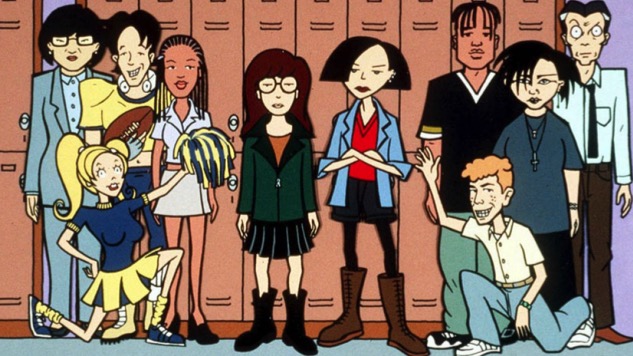
The brilliance of Daria, then, lies in the fact that the show does not present a single story. Within MTV’s series, no person is truly one sided. In the very not real medium of animation, these creators have devised an ensemble of realistic characters.
There is a reason clichés get overused — they work. Viewers devour a story where there exists a clear divide between different kinds of people. Thus, it was clever for the show to still use a formula that viewers love. But what is important is how they have treated that formula; they make it healthier. Every character is capable of being more than just the trope that befits them.
Daria is also important for the show’s elimination of a sense of hierarchy. Daria values her intellect, Quinn values her appearance, and Brittany values her popularity. Though individual characters might disagree with what another values, the show does not suggest that any of these interests are inherently more important than another. By the show’s conclusion, though each character has matured, they all maintain the same interests. Unlike a film such as Mean Girls, where the concluding sequence involves every character becoming more neutral and alike, Daria concludes with the same diversity of personalities. This sends the message that it is acceptable and very normal to champion different ideas. This is representative of real-life teenagers, who value different aspects of themselves. This representation is healthy, for it does not pretend that one kind of person is inherently better than another. No matter which character a viewer might identify with, they are shown that it is OK to be like that person.
It is almost common knowledge that entertainment media must communicate a useful ‘message’ to viewers; a moral to be learned from. However, it is often the more subtle lessons that are most significant. By embedding subverted tropes and clichés into every facet of Daria, the show sends the message that complexity is normal. A wide range of teenagers, and adults too, can look to the characters on screen and find a part of themselves positively represented.
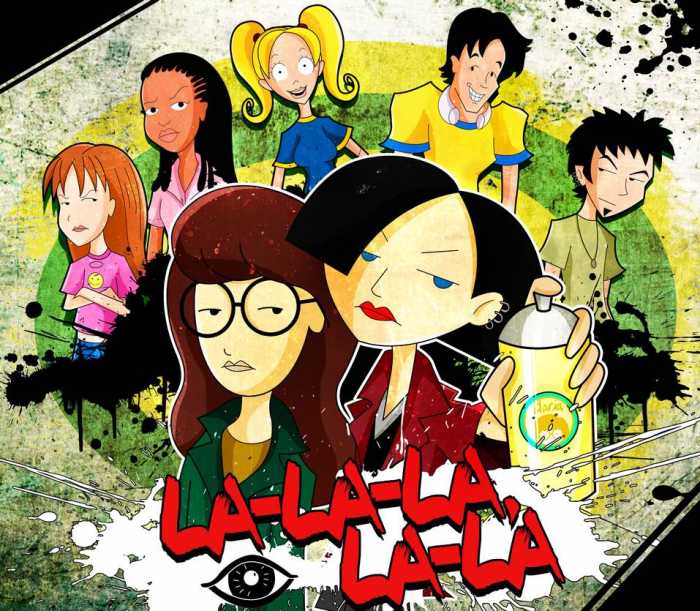
The value of Daria does not only apply to the 1990s society who first received the animated series. Twenty-three years after it first premiered, the show can still be seen as a leader in the effort to ditch restrictive stereotypes in media. Perhaps that is why this quirky show with a snarky outcast as the centre of attention is still beloved by many today.
It is no secret that, to this day, representation in media is a pressing issue. Daria is not perfect; notable gaps in the series include representation of the LGBTQ+ community or people of colour. However, for a group as impressionable as teenagers, the show is a leader in depicting healthy and complex characters. Though they are merely animated, adolescents should turn to the cast of Daria for vibrant, flawed, and realistic role models.
What do you think? Leave a comment.
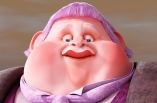
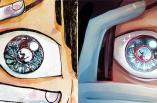
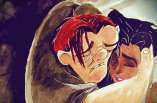
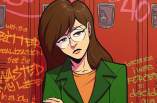
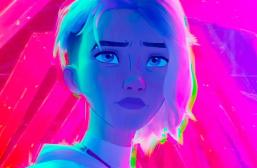
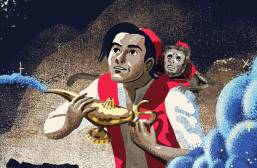
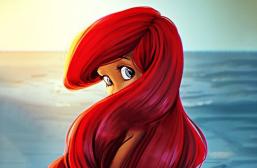
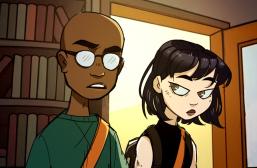
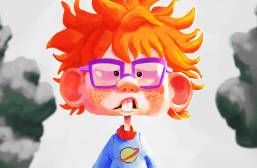
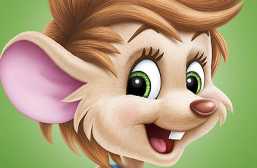
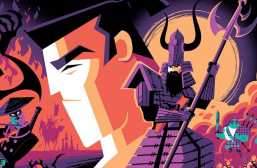
Each of these characters mentioned has a developmental arc that is exploited well for comedic effect and is well-illustrated in this article. Well done!
You’ve explained each character and trope well, and I feel like I know more about them, especially Daria. I was homeschooled, so I can’t say that I was like any of these characters during High School. However, I’d say there’s a Daria, Quinn, and Brittany in all of us. Who do you think you were most like as a teenager?
This might sound strange but high school here in Australia is nothing like the media shows U.S. high school to be. So, I don’t know if these kinds of cliques really exist? That being said, I think I was definitely more of a Daria back then, mostly in the way that she is quiet and academically-inclined. She is infinitely cooler than my teenage self ever was though, that is for sure haha!
It seems presumptuous to say it, but I saw a lot of my high-school self in Daria. I was a bespectacled, socially misfit nerd, socially awkward enough that I was perceived as cold and aloof where I really didn’t mean to be— lacking the acerbic wit though, that too the coolest thing about Daria. The fact that the show acknowledged not only Daria’s status as the “cool outsider”, but also the insecurities and dilemmas that came with it, makes a very human character out of the seemingly borderline-misanthropic Daria. And it means a lot to me, too.
I agree completely, I love that she isn’t a one-dimensional person. Underneath the persona that she shows strangers, she’s deeply complex and different than she appears. I think the show’s creators did this really well.
I don’t think I ever really watched Daria growing up, but after reading this . . . I feel like I really missed out on something here! I can see little bits of myself in all of the character descriptions you gave, but I might’ve been relegated to the “misfit” category when it comes to my high school classmates’ perceptions. I was definitely not in the popular group although I could get along fine with certain kids who were considered popular. Oh, the joys of high school! haha
I was only four when the show’s original run finished, so I just have vague memories of watching reruns as a kid. But I first watched the whole series a few years back, and I can definitely say it is worth watching as an adult!
It is interesting though that, like you, no one seems to fully identify with just one trope. It just goes to show how unrealistic they are, and why Daria gets it right in depicting the characters as more than just oversimplified caricatures.
That’s true! Yeah, I was also pretty young by the time the original show ended (like maybe seven or so) and have vague memories of it being a cultural phenomenon. It seemed too “mature” for me at the time so I don’t think I ever really got around to watching it at all. Poor timing, I guess. But like you said, I think it probably translates even better in adulthood. There are probably so many social commentary witticisms I would’ve missed out on as a kid.
I was Daria. But I was a teenaged Daria in the late 70s and early 80s. How I wish the show was around back then. Our high school was a big one, by the way, but multiidimensional it was not. The rest of my classmates were advanced placement class taking future Yuppies – a very small group- or Beavis and Butthead.
When this show was on the air, I was a middle-aged male and I loved it. It reminded me of my high school years in the 1960s. There have always been “Darias,” both male an female, in every school, in every era. If you are intelligent and non-conformist, this show speaks to you.
It’s on DVD for all you old people like me who can’t figure out “streaming apps.”
If I remember correctly, though, the DVDs don’t have the original music which is a damn shame as (unsurprisingly) it was so integral to the show. You just can’t replace “looking down the barrel of a gun, son of a gun” during the paintball episode, for example…
I did manage to ahem, find most episodes online before that though that are still on a hard drive somewhere. Time to rewatch.
And yep, I was pretty much Daria (touch less cynicism and did run cross country, but other than that, yup). And my best friend was the artistic goth-y child of hippies who were rarely home. Didn’t have cable and found the show in college, though…. It’s just how it was and the show did a damn good job. Even the side characters were nuanced and rang true (except Kevin, who wasn’t nuanced but still rang true).
Wow, I didn’t know they didn’t have the original music! I have only seen every episode on DVD, so now I’m a little disappointed that I haven’t experienced the show with it’s intended music.
But, in saying that, kudos to whoever chose the music for the DVDs because it certainly all fits and sounds like it belongs there.
The show was great as being one of the few shows (like “Square Pegs” a decade before) of showing High School as not a “High School Musical” idealization. It made fun of the archetypal characters that existed in television writers imagination. The character of Daria being a strong individualist with an unbending integrity reminded me of Cyrano De Bergerac (or Holden Caulfied on meds).
Degrassi Junior High was another.
Daria was great.
I remember discovering that my aging, nervous grandmother also enjoyed it and found the show somehow reassuring. So not just for zeigtgeist-y children of the 90s.
Legends of Chamberlain Heights is my new favourite animated comedy.
Hugely intelligent series. Always wished I would meet a real life Jane, my secret guilty crush. Still watch the DVDs.
You made me miss her…
You can always re-watch the series! I’m fairly certain it is available for purchase on YouTube and Google Play.
Daria was a great show.
Her idiotic dad was probably the most entertaining character. The best voice performance was the Asian girl from the fashion club who spoke incredibly slowly.
Gee Quinn…
This phrase and the way she says it is permanently burned into my brain haha. That, and the way Quinn shouts “Mo-OOM”
I totally read that in her voice!
I hate to be that person who drags Donald Trump into the comment section, but his voice has always reminded me of the girl who says “Gee Quinn.”
To quote Beavis and Butthead (from whence she came):
“Dia-reea, cha-cha-chaaa”
I had a huge crush on Daria as a child. In retrospect, this may explain a lot of my dating decisions thereafter.
Especially since you are currently dating Meg from Family Guy…
Better and still more relevant than ‘oh-we’re-so-hip’ Girls.
Daria- everything that Lena Dunham wishes she was.
What I like about Daria, and as I stated in the article, is that the women in the series are not pitted against one another. They are vastly different; they have unique personalities and a diverse range of interests. But it is not used as a reason to imply that one kind of person is any better than the others.
Great article and while the lack of BiPOC was there we had Jodi and MAck and I for one loved Jodi. She was everything to me b/c I viewed myself as Daria and Jodi combined. The writers did a great job with Jodi one notable example is her “Queen of the Negroes” speech which still resonates.
This is true, Jodie was a great character and, as you say, handled very well! For me, that speech is one of the most memorable moments of the entire series.
After watching every episode though, it struck me that she felt the most human. She wasn’t an exaggerated trope. She was intelligent but also outgoing and friendly and then also athletic. Like people, she didn’t have one strength and that was it. A very well-written character.
Definitely one of the most memorable. I watched while this aired and watched throughout the years in reruns. I eventually bought the box set and while the music changed b/c of the rights the show still holds us fantastically. I watch the whole series at least once every year and watch my favorite episodes more often.
It really is just a great show and I am looking forward to the new Jodi/Daria spinoff coming soon and hoping that I won’t be disappointed.
I had no idea they were making a spinoff! I need to look into that.
Loved the show when it first aired…and I confess, I find it fascinating to see its impact reverberating around the world literally decades later. It may seem trope laden, but for those who recall suburban American schools near the end of the 80s/ dawn of the 90s…the show strikes a few familiar chords. Some people lived with the tropes, witnessed the pursuit of conformity and mediocrity, observed the omnipresent vapidity first hand…and evolved past it, (despite or because of it, perhaps)…but Daria also seemed to acknowledge the trapped, those stuck in a role they hadn’t meant to take on, confined by expectations and social pressure, silently screaming to be free and be themselves. In fairness, although the show never openly addressed sexuality in a more wide perspective (and I say this as a former kid from the late 80s who ultimately came out and made his peace with his sexuality shortly after high school), it did somehow transcend issues of sexual identity without direct reference, staying (PG) rated while flagrantly hinting at liberal perspectives in an era notoriously hostile to anything that broke with convention…its characters seemed to have an open mind about almost everything, never measuring people based on their capacity to love, but only judging people negatively for their capacity to be cruel. In that, many of us found fictional kindred spirits, whose sarcasm and separateness we could only nod to and admire.
I’m 31 now and couldn’t watch enough Daria when I was younger. Every new and repeat episode was always on!
I was 31 then and couldn’t watch enough Daria. I didn’t get why my ex wife wasn’t a fan.
Before “feminist” had such a negative connotation!
I’m pretty sure that the word feminist only has negative connotations these days to people whose opinion nobody cares about.
And, ironically, by the late eighties, early nineties, feminist had become a word a lot of women had disassociated themselves with, because of its image of left wing navel gazing ideological purity it, rightly or wrongly, brought to mind. Daria was in many ways part of an overall movement to reclaim it as a positive movement.
So you couldn’t be more wrong – it was back when “feminist” had a negative connotation – something it doesn’t have today, not “before”.
Daria was great. It was so arch and cynical even for the 90’s plus it didn’t harm it that the scripts were honed to perfection and the voice actors just did a great job…. It reminds me of a time in university watching it in either an overworked or hungover state on a bleary portable tele in a freezing cold room… Thems were the days…
A good representation of the characters and how they relate to everything. I love it.
Thank you for your kind words 🙂
I loved Daria. Her, and Jane’s, outlook on life gave me hope for the future. There was intelligent life out there… Where are they now? We need them!
Taking a selfie for their Instagram?
Loved, loved, loved Daria. As a nerdy unpopular bookish teenager, it completely resonated with me – I loved that she wasn’t afraid of being herself and didn’t worry about giving her opinion or what other people thought. Plus I agree wholeheartedly with her views on pizza.
I think that is what drew me to revisit the series when I was 17 or 18. She just seemed so darn cool, in a way that I could relate to. She could be a little unfair in her criticism of people, but she was a good role model.
Fun fact: Daria was created and written by men (Mike Judge created with Glenn Eichler lording the writing credits every episode).
I did know that. They did incredibly well writing these characters.
The other co-creator of the show was a woman, Susie Lewis. Judge wasnt involved and only gets credit because Eichler originally created Daria for B&B. And nearly every episode not written by Eichler (most of them) was written by a woman.
The character was created by Judge as part of the Beavis and Butthead show. He had little to do with the Daria TV series itself, beyond giving it his blessing and creating enough of a character (Daria in B&B was pretty bare bones) for Eichler to flesh out into what we saw on the Daria TV series itself.
Daria was a cool show, not just for women people, but men too. But my favourite 90s teenage girlie show was the ace Sabrina the Witch. I don’t suspect too many people will have fond memories of this show though as it wasn’t as cerebral, insightful or acerbic as Daria, but thinking about both shows reminds me of my trippy, halcyon youth.
Sabrina jumped the shark though when she left Aunt Zelda’s gaff and started working as a journalist. Loved Salem as well.
Sabrina, and especially Salem, was ace.
I wish this had been on in the mid-1960’s when I was in high school! However, I did not have a Jane. It was just me against all the Mean Girls. I believe my mordant wit started at that point. At least some of the teachers understood (others had brain casings as thick as coconuts).
Wow, I keep forgetting that MTV actually used to be worth watching…
I’ve done some graphic design work for MTV as a freelancer, and during one of my gigs I asked one of the higher-ups why they didn’t play videos any more. He said that videos simply don’t get ratings as they did when music videos were a novelty. It’s a shame too, because as a youngster in its early days, it introduced me to so much new music, especially UK bands who would otherwise not have gained such a US following. The specialty shows were great too, like 120 Minutes, Yo MTV Raps, and Headbanger’s Ball. Shame it had to change.
Great that Daria is a role model.
Despite the culture of this show being quintessentially 90s Daria as a character is timeless. As a preteen in the late 90s she’s just about the only character on TV I ever related to. Too bad copyright issues have prevented the show from streaming since I’m sure she’d still find an audience with teens today.
In my case, Daria was love at first sight. I distinctly remember seeing ads for it on Paramount Comedy Channel (which had L7’s “Pretend We’re Dead” playing in the background) and thinking, “I have just GOT to see this!” And it didn’t disappoint. Good memories of watching it and “Hey Arnold!” during an otherwise dreary summer in the early 00s.
Daria and Jane are awesome, of course, but my favourite characters are probably the adults – her dad Jake (“I’m not done with you yet, old man!”), Mr DeMartino and Ms Barch. Dysfunctional teachers who honestly weren’t far off from some of my own!
The thing I don’t like about Daria is her voice. I know people of all ages have a wide range of voices, but Daria sounds like a depressed 45-year-old, making it difficult to believe she’s a teenager.
I was past the age group that MTV aimed Daria at, but I liked the show a lot, and still watch it on MTV Classic. One good thing is that the writers did allow for growth of Quinn, Jane, and Daria herself in the later seasons.
I saw Daria on one of the digital channels a few years ago, and didn’t realise it was that old. Is it weird that I found her best friend attractive?
Daria was brilliant, with endless slams and shade-throwing at every icon of emo, goth, and 90s teen existentialist angst parodied and played.
Hope Daria got married and had many babies!
Fanfic in the making?
I loved it. And I am a bloke.
Loved this article! Daria meant so much to me growing up and I love how eloquently you were able to describe the nuances of the show 🙂
I believe Daria was the only show where I saw teenagers growing into who they are rather than only being labeled as whatever label the show gave them. It gave me an insight at a very young age that high school would be difficult for me but I would be able to work through it which would help me.
I can’t remember the exact phrasing but one of my favorite moments from Daria was from season 2 episode 6 “Monster” where Daria and Jane make a film about Quinn in order to make fun of her shallowness, then when this plan works too well, Quinn has this moment where she explains how the world needs shallow people like her so misfits like Daria and Jane can feel good about themselves. It showed a real sadness in Quinn, like she’s fully aware of how unfulfilling her relationships are but is too scared of being an outsider to do something about it.
Raphael Bob-Waksberg (Bojack Horseman) said that Daria was an influence on Bojack because it taught him that “smart people aren’t always right, and stupid people aren’t always bad.” I think the examples you listed well illustrate this point that as much as we want to idolize Daria and put down Quinn and Brittany, they still feel like people so that becomes harder to do. As much as we appreciate Daria for her wit and attitude, she can still come off as petty and selfish (pretty much everything from the Tom storyline leaps to mind.)
I think the real sadness of Daria is that even though she’s supposed to be the smartest person in every room, her struggles with her own pursuits (writing, college applications, scholarships, personal relationships,) show that despite this intelligence, she isn’t as special as she might think she is. And even though as an audience we want her to succeed and get everything she wants, the world is much bigger than her small town, and more likely than not, she’s not going to be very important. This subtle lesson of showing the teen demographic the show was made for to expect that life isn’t going to be as great as we’re told it’s going to be is essential. That’s a lesson a lot of teen centered media misses, and as sad as it is, it’s better to learn that as soon as possible. And that’s something that makes Daria special.
Thanks for the article!
Wow, a great read. I loved the article.
A great way of thinking of one of the most significant shows of the 90s. Aged better than a lot of other shows of its time.
I absolutely adore Daria. I binge-watched the whole thing in a few days when I was about 15 and it just made me feel so much better about being an angsty teenager who cared too much about not caring. It has really stuck with me and I still watch episodes regularly – I think it’s brilliant writing.
Thank you for this!
This was a very interesting article. I’ve been a huge fan of animation all my life, but I avoided Daria based on what I saw in the few clips I saw of it out of context. I understood that, as a show about teenagers, the characters were going to be rebellious and snarky, more so perhaps than a Disney show where the teenagers are a little less antagonistic. Daria’s misanthropy, however, really turned me off from the show. I figured the show would just be for teenagers to self-indulge in how awesome they were for being aloof and non-conformist like Daria. After reading this article, however, I’m looking forward to finding the show and discovering what I’ve been missing. Thank you for writing this.
I think the authorial intent of the writing room said a lot because they had an opportunity to highlight other characters that Daria or Jane would have gravitated to and they made the effort to not include them as to not create a counter clique.
Nice exploration!!